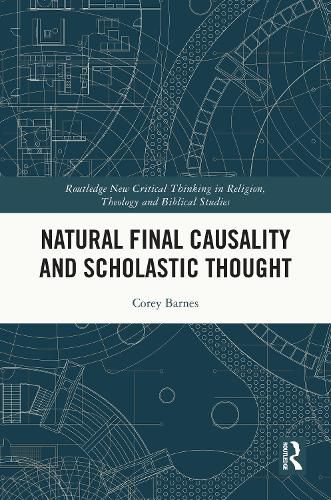Readings Newsletter
Become a Readings Member to make your shopping experience even easier.
Sign in or sign up for free!
You’re not far away from qualifying for FREE standard shipping within Australia
You’ve qualified for FREE standard shipping within Australia
The cart is loading…






This book examines scholastic conceptions of final causality through the methods and concerns of historical theology. It argues the history of final causality is most profitably understood according to the interplay of regularity, order, and intentionality as interpretive categories. Within this analytic framework, the author explores the history and theological implications of final causality from Aristotle to Nicole Oresme, utilizing shifts in the dominant interpretive category to clarify how final causality could change from one of four co-equal explanatory strategies in Aristotle to the cause of causes in Avicenna to a merely metaphorical cause in Walter Chatton. Theological debates - ranging from questions of creation, the relationship of primary and secondary causality and of the ultimate good to secondary goods, the autonomy or instrumentality of nature, and the compatibility of chance with providence - motivated many of these changes. The chapters examine final causality in Aristotle and the commentorial tradition from late antiquity to medieval Arabic sources and then consider in detail various scholastic understandings and uses of final causality. The book will be of particular interest to scholars of historical theology, systematic theology, scholastic thought, and medieval philosophy.
$9.00 standard shipping within Australia
FREE standard shipping within Australia for orders over $100.00
Express & International shipping calculated at checkout
Stock availability can be subject to change without notice. We recommend calling the shop or contacting our online team to check availability of low stock items. Please see our Shopping Online page for more details.
This book examines scholastic conceptions of final causality through the methods and concerns of historical theology. It argues the history of final causality is most profitably understood according to the interplay of regularity, order, and intentionality as interpretive categories. Within this analytic framework, the author explores the history and theological implications of final causality from Aristotle to Nicole Oresme, utilizing shifts in the dominant interpretive category to clarify how final causality could change from one of four co-equal explanatory strategies in Aristotle to the cause of causes in Avicenna to a merely metaphorical cause in Walter Chatton. Theological debates - ranging from questions of creation, the relationship of primary and secondary causality and of the ultimate good to secondary goods, the autonomy or instrumentality of nature, and the compatibility of chance with providence - motivated many of these changes. The chapters examine final causality in Aristotle and the commentorial tradition from late antiquity to medieval Arabic sources and then consider in detail various scholastic understandings and uses of final causality. The book will be of particular interest to scholars of historical theology, systematic theology, scholastic thought, and medieval philosophy.